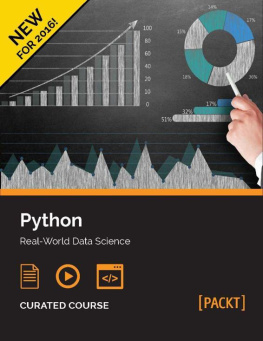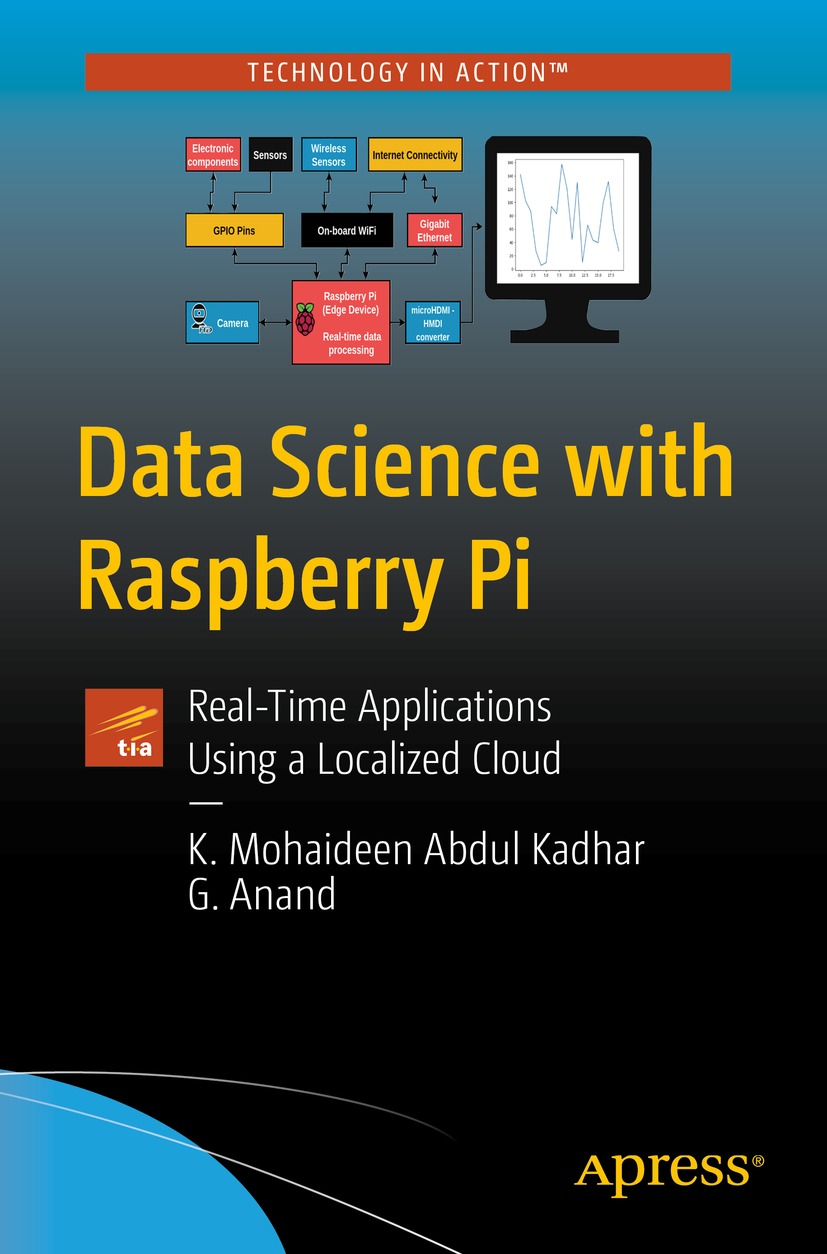K. Mohaideen Abdul Kadhar and G. Anand
Data Science with Raspberry Pi
Real-Time Applications Using a Localized Cloud
1st ed.

Logo of the publisher
K. Mohaideen Abdul Kadhar
Pollachi, Tamil Nadu, India
G. Anand
Pollachi, Tamil Nadu, India
Any source code or other supplementary material referenced by the author in this book is available to readers on GitHub via the books product page, located at www.apress.com/978-1-4842-6824-7. For more detailed information, please visit www.apress.com/source-code.
ISBN 978-1-4842-6824-7 e-ISBN 978-1-4842-6825-4
https://doi.org/10.1007/978-1-4842-6825-4
Apress standard
K. Mohaideen Abdul Kadhar and G. Anand 2021
This work is subject to copyright. All rights are reserved by the Publisher, whether the whole or part of the material is concerned, specifically the rights of translation, reprinting, reuse of illustrations, recitation, broadcasting, reproduction on microfilms or in any other physical way, and transmission or information storage and retrieval, electronic adaptation, computer software, or by similar or dissimilar methodology now known or hereafter developed.
The use of general descriptive names, registered names, trademarks, service marks, etc. in this publication does not imply, even in the absence of a specific statement, that such names are exempt from the relevant protective laws and regulations and therefore free for general use.
The publisher, the authors and the editors are safe to assume that the advice and information in this book are believed to be true and accurate at the date of publication. Neither the publisher nor the authors or the editors give a warranty, expressed or implied, with respect to the material contained herein or for any errors or omissions that may have been made. The publisher remains neutral with regard to jurisdictional claims in published maps and institutional affiliations.
This Apress imprint is published by the registered company APress Media, LLC part of Springer Nature.
The registered company address is: 1 New York Plaza, New York, NY 10004, U.S.A.
To my wife Jashima for her support in writing this book.
Dr. K. Mohaideen Abdul Kadhar
To my parents for their continuous encouragement in writing this book.
G. Anand
Introduction
In modern times data can be thought of as a valuable commodity like oil or gold because we can get a lot of useful information from data with the help of some scientific methods, and we can make intelligent decisions based on that information and convert it into money. Data science is the process of extracting knowledge/useful information from the data.
For example, IBM forecasted that the demand for skilled people in data science will increase by 28 percent in 2020. Many industries use data science concepts in different aspects of their business such as checking whether they have achieved their targets, finding the root cause of failures, etc. Recently, data science has been effectively implemented in politics to develop strategies, identify the weak regions, predict the emotions and expectations of the people, etc. Further, local governments utilize the data collected from the people of their town to devise the planning and policies for the development of the town. Data science is also successfully applied in the agricultural domain in areas like drought assessment, crops yield and remote sensing, etc. This shows that the applications related to data science concepts are emerging nowadays across multiple domains.
Most of the recent books have focused on applying data science techniques to some open and standard dataset. This book is specifically about applying data science concepts in the Raspberry Pi board. The Raspberry Pi can act as a single on board computer and can also interact with the real-time environment via sensors as most of the local servers cant do this task.
The book will start with a brief introduction to data science followed by which there will be a dedicated chapter for explaining the concepts of Python starting from the installation of the software to the various data types and modules available. The next two chapters will introduce the readers to Raspberry Pi devices, their hardware description, and the setting up of the devices for gathering real-time data. The next four chapters will deal with the different operations in data science with respect to real time applications using Raspberry Pi hardware. The penultimate chapter of the book will discuss about the concepts that will enable the Raspberry Pi to learn from the data. The last chapter will have few case studies that will give the readers an idea of the range of domains where these concepts can be applied.
Acknowledgments
First, I wish to thank the almighty Allah for giving me strength and courage in writing this book. Writing a book is more complex than I thought. We struggled many times when developing the content of this book because this book focuses not only the concepts but also on the real-time implementation details on the Raspberry Pi.
My sincere thanks to my family, especially my mom and dad. Without them, I would not have attained this level of achievement.
A very special thanks to my wife Mrs. M. Jashima Parveen for her support and love. She always set me free for writing this book. In my hard times, her support and encouragement gave me strength and courage. I could not have done it without her.
My sincere thanks to chief editor Mr. Aaron Black and book coordinator Ms. Jessica Vakkili for their enormous support. Even when some of the chapters were delayed, they gave their support in developing the contents of the book.
My heartfelt thanks to the management of Dr. Mahalingam College of Engineering and Technology, Pollachi, especially, I thank to my Head of the Department, Dr. R. Sudhakar, Professor, for his encouragement and trust in my work and knowledge.
Last but not least, special thanks to my colleague G. Anand for his support and coordination in writing the book.
Table of Contents
About the Authors
K. Mohaideen Abdul Kadhar
earned an undergraduate degree in electronics and communication engineering and a master of technology degree with a specialization in control and instrumentation. In 2015, he obtained his PhD in control system design using evolutionary algorithms. He has more than 14 years of experience in teaching and research. His areas of interest are evolutionary algorithms, control systems, signal processing and computer vision. Now, He is working to implement signal processing and control system concepts with Python programming on the Raspberry Pi. He has taught many courses and has delivered workshops about data science with Python programming. In addition, he has acted as a consultant for many industries in developing machine vision systems for industrial applications.
G. Anand
obtained his bachelor of engineering degree in electronics and communication engineering in 2008 and his master of engineering degree in communication systems in 2011. He has more than nine years of teaching experience with a specialization in signal and image processing. He has taught courses and acted as a resource person in workshops related to Python programming. His current research focus is in the domain of artificial intelligence and machine learning.

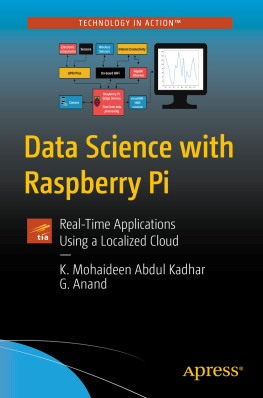

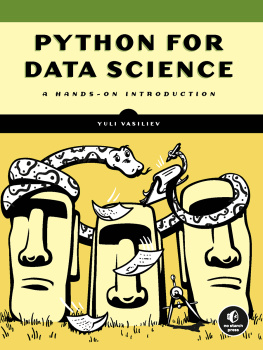

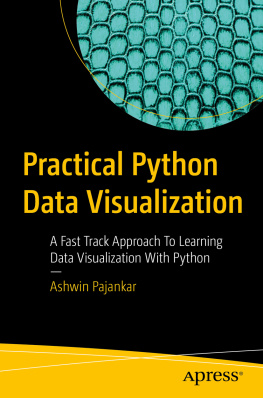
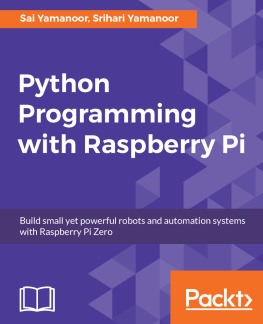

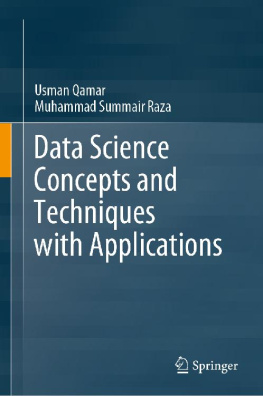
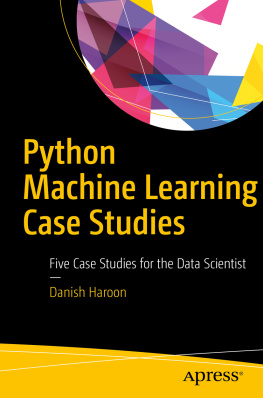
![Michael R. Brzustowicz [Michael R. Brzustowicz] - Data Science with Java](/uploads/posts/book/119626/thumbs/michael-r-brzustowicz-michael-r-brzustowicz.jpg)
